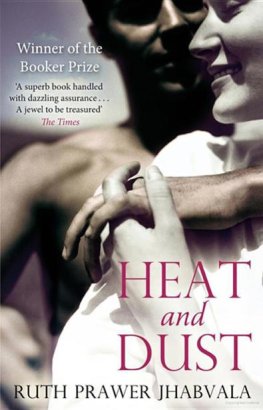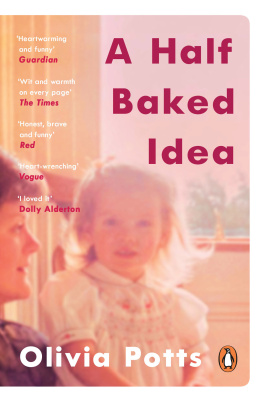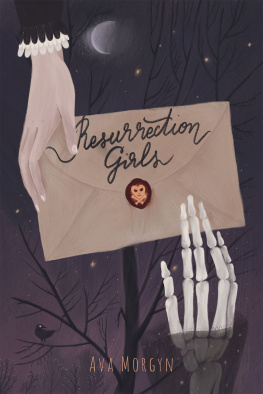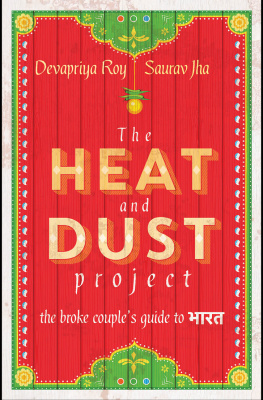Ruth Prawer Jhabvala
Heat and Dust
Shortly after Olivia went away with the Nawab, Beth Crawford returned from Simla. This was in September, 1923. Beth had to go down to Bombay to meet the boat on which her sister Tessie was arriving. Tessie was coming out to spend the cold season with the Crawfords. They had arranged all sorts of visits and expeditions for her, but she stayed mostly in Satipur because of Douglas. They went riding together and played croquet and tennis and she did her best to be good company for him. Not that he had much free time, for he kept himself as busy as ever in the district. He worked like a Trojan and never ceased to be calm and controlled, so that he was very much esteemed both by his colleagues and by the Indians. He was upright and just. Tessie stayed through that cold season, and through the next one as well, and then she sailed for home. A year later Douglas had his home leave and they met again in England. By the time his divorce came through, they were ready to get married. She went out to join him in India and, like her sister Beth, she led a full and happy life there. In course of time she became my grandmother but of course by then everyone was back in England.
I don't remember Douglas at all he died when I was three but I remember Grandmother Tessie and Great-Aunt Beth very well. They were cheerful women with a sensible and modem outlook on life: but nevertheless, so my parents told me, for years they could not be induced to talk about Olivia. They shied away from her memory as from something dark and terrible. My parents' generation did not share these feelings on the contrary, they were eager to learn all they could about Grandfather's first wife who had eloped with an Indian prince. But it was not until they were old and widowed that the two ladies began at last to speak about the forbidden topic.
By that time they had also met Harry again. They had kept up with him by means of Xmas cards, and it was only after Douglas' death that Harry came to call on them. They spoke about Olivia. Harry also told them about Olivia's sister, Marcia, whom he had met shortly after his return from India. He had continued to see her over the years till she had died (drunk herself to death, he said). She left him all Olivia's letters and he showed them to the old ladies. That was how I first came to see these letters which I have now brought with me to India.
Fortunately, during my first few months here, I kept a journal so I have some record of my early impressions. If I were to try and recollect them now, I might not be able to do so. They are no longer the same because I myself am no longer the same. India always changes people, and I have been no exception. But this is not my story, it is Olivia's as far as I can follow it.
These are the first entries in my journal:
2 February. Arrival in Bombay today. Not what I had imagined at all. Of course I had always thought of arrival by ship, had forgotten how different it would be by plane. All those memoirs and letters I've read, all those prints I've seen. I really must forget about them. Everything is different now. I must get some sleep.
Woke up in the middle of the night. Groped for my watch which I had put on top of my suitcase under the bed: it wasn't there. Oh no! Not already! A voice from the next bed:
"Here it is, my dear, and just be more careful in future please." Half an hour after midnight. I've slept about four hours. Of course I'm still on English time so it would be now about seven in the evening. I'm wide awake and sit up in bed. I'm in the women's dormitory of the S.M. (Society of Missionaries) hostel. There are seven string beds, four one side three the other. They're all occupied and everyone appears to be asleep. But outside the city is still awake and restless. There is even music somewhere. The street lamps light up the curtainless windows of the dormitory from outside, filling the room with a ghostly reflection in which the sleepers on their beds look like washed-up bodies.
But my neighbour the guardian of my watch is awake and wanting to talk:
"You've probably just arrived, that's why you're so careless. Never mind, you'll learn soon enough, everyone does. You have to be very careful with your food in the beginning: boiled water only, and whatever you do no food from these street stalls. Afterwards you get immune. I can eat anything now if I want to. Not that I'd want to I hate their food, I wouldn't touch it for anything. You can eat here in the S.M., that's quite all right. Miss Tietz looks after the kitchen herself and they make nice boiled 'Stews, sometimes a roast, and custard. I always stay here when I come to Bombay. I've known Miss Tietz for twenty years. She's Swiss, she came out with the Christian Sisterhood but these last ten years she's been looking after the S.M. They're lucky to have her."
It may be due to the ghostly light that she looks like a ghost; and she's wearing a white night-gown that encases her from head to foot. She has tied her hair in one drooping plait. She is paper-white, vaporous yes, a ghost. She tells me she has been in India for thirty years, and if God wants her to die here, that is what she will do. On the other hand, if He wants to bring her home first, she will do that. It is His will, and for thirty years she has lived only in His will. When she says that, her voice is not a bit ghost-like but strong and ringing as one who has been steadfast in her duty.
"We have our own little chapel out in Kafarabad. It's a growing town because of the textile mills but not growing in virtue, that I can tell you. Thirty years ago I might have said there is hope: but today none. Wherever you look, it's the same story. More wages means more selfishness, more country liquor, more cinema. The women used to wear plain simple cotton dhotis but now they all want to be shiny from the outside. We won't speak about the inside. But why expect anything from these poor people when our own are going the way they are. You've seen that place opposite? Just take a look.
I go to the window and look down into the street. It's bright as day down there, not only with the white street lights but each stall and barrow is lit up with a flare of naphtha. There are crowds of people; some are sleeping it's so warm that all they have to do is stretch out, no bedding necessary. There are a number of crippled children (one boy propelling himself on his legless rump) and probably by day they beg but now they are off duty and seem to be light-hearted, even gay. People are buying from the hawkers and standing there eating, while others are looking in the gutters to find what has been thrown away.
She directs me to the other window. From here I get a view of A. 's Hotel. I had been warned about that place before I came. I had been told that, however bleak and dreary I might find the S.M. Hostel, on no account should I book myself intoA.'s.
"Can you see?" she called from her bed.
I saw. Here too it was absolutely bright, with street and shop lamps. The sidewalk outside A.'s was crowded not. with Indians but with Europeans. They looked a derelict lot.
She said" Eight, nine of them to a room, and some of them don't even have the money for that, they just sleep on the street. They beg from each other and steal from each other. Some 'of them are very young, mere children there may be hope for them, God willing they'll go home again before it's too late. But others there are, women and men, they've been here for years and every year they get worse. You see the state they're in. They're all sick, some of them dying. Who are they, where do they come from? One day I saw a terrible sight. He can't have been more than thirty, perhaps a German or Scandinavian he was very fair and tall. His clothes were in tatters and you could see his white skin through them. He had long hair, all tangled and matted; there was a monkey sitting by him and the monkey was delousing him. Yes the monkey was taking the "lice out of the man's hair. I looked in that man's face in his eyes and I tell you I saw a soul in hell. Oh but I've seen some terrible sights in India. I've lived through a Hindu-Muslim riot, and a smallpox epidemic, and several famines, and I think I may rightly say I've seen everything that you can see on this earth. And through it all I've learned this one thing: you can't live in India without Christ Jesus. If He's not with you every single moment of the day and night and you praying to Him with all your might and main if that's not there, then you become like that poor young man with the monkey taking lice out of his hair. Because you see, dear, nothing human means anything here. Not a thing," she said, with the contempt of any Hindu or Buddhist for all this world might have to offer.










